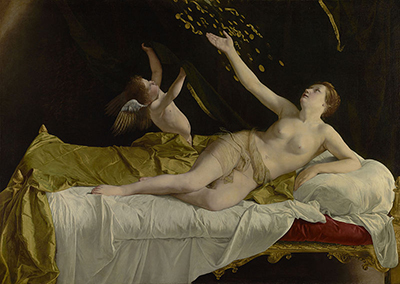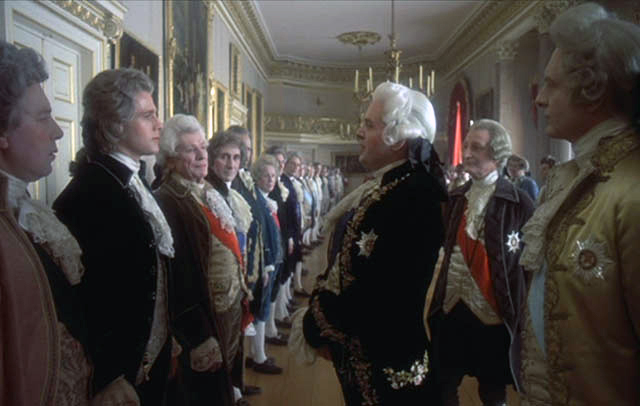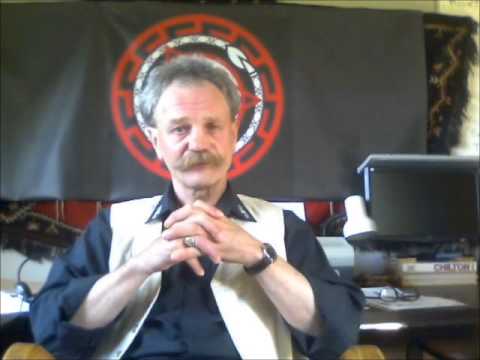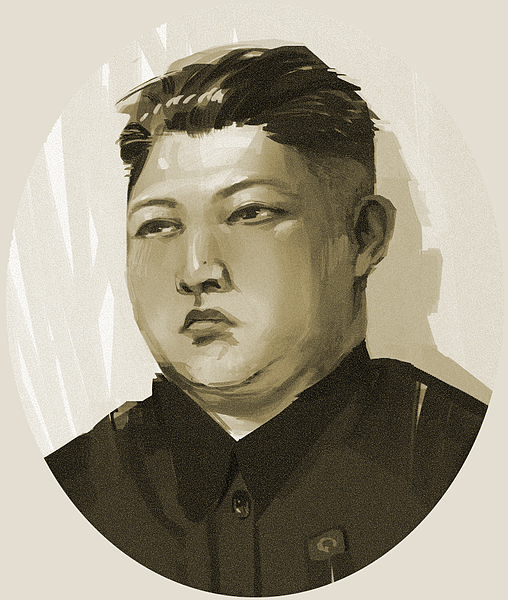by Mike Maloney

Chapter Four:
Greed, War, and the Dollar’s Demise
With the outbreak of World War I, as with all the historical examples we’ve already covered in this book, the combatants halted redemption in gold, increased taxes, borrowed heavily, and created additional currency. However, because the United States did not enter the war for almost three years, it became the major supplier to the world during that time.
Gold flowed into the U.S. at an astounding rate, increasing its gold stocks by more than 60 percent. When the European Allies could no longer pay in gold, the U.S. extended them credit. Once the U.S. entered the war, however, it too spent at a rate far in excess of its income. The U.S. national debt went from $1 billion in 1916 to $25 billion by war’s end.
The world currency supply was exploding.
After the war, the world longed for the robust trade and economic stability of the international gold standard that had worked so well before the war. Thus, throughout the 1920s most of the world governments returned to a form of the gold standard. But the standard employed wasn’t the classical gold standard of the prewar period. Instead, it was a pseudo-gold standard called the gold exchange standard.
Governments never seem to learn that you can’t cheat gold. During the war, many countries inflated their currency supplies drastically. Yet when they tried to return to gold, they didn’t want to devalue their currency against that gold by making the number of units of currency (gold certificates, or claim checks on gold) match the number of units of gold that backed that currency. So here’s their “solution”:
Building pyramids
After the war, the United States had most of the world’s gold. Conversely, many European countries had large supplies of U.S. dollars (and depleted gold reserves) because of the many war loans the U.S. had made to the Allies. Thus was decided that under the gold exchange standard, the dollar and the British pound, along with gold, would be used as currency reserves by the world’s central banks and that the U.S. dollar and the pound would be redeemable in gold.
In the meantime, the U.S. had created a central bank (the Federal Reserve) and given it the power to create currency out of thin air. How can you create currency out of thin air and still back it with gold, you ask? You impose a reserve requirement on the central bank (the Federal Reserve), limiting the amount of currency it creates to a certain multiple of the units of gold it has in the vaults. In the Federal Reserve Act of 1913, it specified that the Fed was to keep a 40 percent reserve of “lawful money” (gold, or currency that could be redeemed for gold) at the U.S. Treasury.
Fractional reserve banking is like an inverted pyramid. Under a 10 percent reserve, one dollar at the bottom can be expanded, by layer upon layer of book entries, until it becomes $10 at the top. Adding a fractional reserve central bank, underneath fractional reserve commercial banks, was akin to placing an inverted pyramid on top of an inverted pyramid.
Before the Federal Reserve, commercial banks, under a 10 percent reserve ratio, could hold a $20 gold piece in reserve and create another $180 of loans, for a total of $200. But with the Federal Reserve as the foundation under the banking pyramid and having a reserve requirement of 40 percent, the Fed could put $50 in circulation for each $20 gold coin it had in the vaults. Then the banks, as the second layer in the pyramid, could create loans of $450 for a total of $500.
With the new gold exchange standard, foreign central banks could use dollars instead of gold. This meant that if the Federal Reserve had a $20 gold piece in the vault, and issued $50, then a foreign central bank could hold that $50 in reserve and, at a reserve ratio of 40 percent, issue the equivalent of $125 of their currency. Then when that $125 hit the banks, the banks could expand that to $1,250 worth of claim checks, all backed by a single, solitary $20 gold piece. That means that the real reserve ratio (the ratio of real money that could be paid out against their currency) was now only 1.6 percent.
Now there was an inverted pyramid, on top of an inverted pyramid, on top of an inverted pyramid. This was highly unstable. Ultimately, the gold exchange standard was a faulty system that governments imposed on their citizens, which allowed the governments to act as if their currencies were as valuable as before the war. This was a system that was destined for failure.
The rise of credit culture
But every pyramid scheme flourishes in its early days, and so did the gold exchange standard. With all the new currency available from the central banks, the commercial banks generated many new loans. This abundance of currency led to the greatest consumer credit expansion thus far in American history, which, in turn, led to the biggest economic boom America had ever experienced. In a very real sense, credit put the roar in the Roaring Twenties.
Before 1913 the vast majority of loans had been commercial. Loans on nonfarmland real estate and consumer installment credit, like auto loans, were almost nonexistent, and interest rates were very high. But with the advent of the Fed, credit for cars, homes, and stocks was now cheap and easy. The effect of low interest rates combined with these new types of loans was immediate; bubbles sprang up everywhere. There was the Florida real estate bubble of 1925, and then of course the infamous stock market bubble of the late 1920s.
During the 1920s, many Americans stopped saving and started investing, treating their brokerage account as a savings account, much like many Americans treated their homes in our most recent housing bubble. But a brokerage account is not a savings account, nor is a house. The value of a savings account depends on how many dollars you put in. But the value of a brokerage account or a house depends solely on the perception of others. If someone thinks your assets have value, then they do, but if they don’t think they have value, then they don’t.
In a credit-based economy, whether the economy does well or does poorly is largely based on people’s perception. If people believe things are great, then people borrow and spend currency, and the economy flourishes. But if people have the least bit of anxiety, if they have doubts about tomorrow, then watch out!
In 1929, the stock market crashed, the credit bubble burst, and the U.S. economy slid into depression.
The mechanics of a depression
The popping of a credit bubble is a deflationary event, and in the case of the Great Depression it was massively deflationary. To understand how a deflation occurs, you need to know how our currency is born, and how it can join the ranks of the dearly departed.
When we take out a loan from a bank, the bank does not actually loan us any of the currency that was on deposit at the bank. Instead, the second the pen hits the paper on that mortgage, loan document, or credit card receipt that we are signing, the bank is allowed to create those dollars as a book entry. In other words, we create the currency. The bank is not allowed to do it without our signature. We create the currency, and then the bank gets to charge us interest for the currency we created. This brand-new currency we just created then becomes part of the currency supply. Much of our currency supply is created in this way.
But when a home goes into foreclosure, a loan gets defaulted on, or someone files bankruptcy, that currency simply disappears back into currency heaven where it came from. So as credit goes bad, the currency supply contracts, and deflation sets in.
This is what happened in 1930-1933, and it was disastrous. As a wave of foreclosures and bankruptcies swept the nation, one-third of the currency supply of the United States evaporated into thin air. Over the next three years, wages and prices fell by one third.
Run, baby, run
Bank runs are also enormously deflationary events because when you deposit one dollar into the bank, the bank carries that dollar as a liability on its books. It someday owes that dollar back to you. However, under a fractional reserve system, the bank is then allowed to create currency in the form of credit (loans), in an amount many times that of the original deposit, which it carries on its books as assets. As we’ve discussed, under a 10 percent reserve, a one dollar liability can create another $9 of assets for the bank.
This is normally not a problem, as long as the bank isn’t loaned-up to the maximum amount permitted. With just a small amount of “excess” reserves, the bank can cover the day-to-day fluctuations because most of the time deposits and withdrawals come close to balancing out.
But a serious problem can develop when too many people show up to make withdrawals at the same time without the counterbalancing effect of the relatively same amount of people making deposits. If withdrawals exceed deposits, the bank will draw from those “excess” reserves. Once those “excess” reserves have been used up, however, fractional reserve banking is then thrown into vicious reverse. From that point on, to be able to pay out one dollar against deposits, the bank must liquidate $9 of loans. This was what was happening in 1931, and it was one of the major contributing factors to the collapse of the U.S. currency supply.
Also, prior to the advent of the Federal Reserve, the public had about one dollar in the bank for each dollar in its pockets, and the banks kept one dollar of reserves on hand to pay out against each $3 of deposits. But thanks to the Federal Reserve, by 1929 the public had $11 in bank deposits for each dollar in its pocket, and the banks only had one dollar on hand to pay out against every $13 in deposits. This was a very dangerous situation. The public had lots of deposits and very little cash, and the banks also had very little cash to back up those deposits.
By November of 1930, bank failures were more than double the highest monthly level ever recorded. Over 250 banks with more than $180 million in deposits would fail that month. But this was only the beginning.
The largest single bank failure in U.S. history happened on December 11, 1930. The sixty-two-branch Bank of the United States collapsed. This failure would have a cascading effect, causing over 352 banks with more than $370 million in deposits to fail in that month alone. Worst of all, this was before deposit insurance. People’s entire life savings were lost in the blink of an eye.
Then, to top it all off, on September 21, 1931, Great Britain defaulted from the gold exchange standard, throwing the world into monetary chaos. Foreign governments, along with businesses and private investors from the United States and around the world, began to fear that the U.S. might follow suit. Suddenly, there was a dash for cash.
Within the U.S., banks were running out of gold coin, and at the same time tremendous outflows of gold began to leave the vaults of the Federal Reserve, destined for far-off lands. The pyramid scheme that was the gold exchange standard began to crumble. To stop the bleeding, the Fed more than doubled the cost of currency in the U.S., raising the rates from 1.5 to 3.5 percent in one week.
As a result, between August 1931 and January 1932, 1,860 banks with $1.4 billion in deposits suspended their operations.
However, 1932 was an election year. Three long years into the Depression people were desperate for a change, and in November, Franklin Delano Roosevelt was elected president. Even though his inauguration wouldn’t be until March, rumors started flying that he would devalue the dollar. Again gold flowed out of the vaults as foreign governments, foreign investors, and the American public lost even more faith in the dollar, and the most devastating bank run in American history began. But this time the American public wouldn’t be fooled.
As Barron’s put it in its March 27, 1933, issue: “It has been aptly observed that the stages of deflation since 1929 have been the flight from property (chiefly securities) into bank deposits, next a flight from bank deposits into currency, and finally, a flight from currency into gold.”
Incredibly, the currency supply of the United States was falling so fast that if it continued at that pace for a year only 22 percent of it would remain. The U.S. economic outlook was dire, and it seemed as if the dollar would fall into oblivion.
Executive order
On March 4, 1933, Roosevelt was inaugurated, and within days he signed executive proclamations closing all banks for a “bank holiday,” freezing foreign exchange, and preventing banks from paying out gold coin when they reopened. A month later he signed an executive order requiring U.S. citizens to turn over their private property (gold) to the Federal Reserve, in exchange for Federal Reserve notes.
On April 20, he signed another executive order, ending the right of U.S. citizens to buy, or trade in, foreign currencies, and/or transfer currency to accounts outside the United States. On the same day, the Thomas Amendment was sent to Congress, authorizing the president, at his discretion, to reduce the gold content of the dollar to as low as 50 percent of its former weight in gold. It was enacted into law on May 12, and then amended to give Federal Reserve notes the full “lawful money” status.
But there was still one major hurdle to overcome before Roosevelt could devalue the dollar: the infamous gold clause.
During the Civil War, President Abraham Lincoln had to come up with a way to pay the troops and introduced a second purely fiat currency to the country the greenback dollar. When it first appeared, the greenback was worth the same amount as gold notes. But by the end of the Civil War they had fallen to just one third of the value of the gold-backed dollar. Many people who had made contracts or taken out loans before the war in gold notes paid them back in depreciated greenback dollars. Of course this was cheating the creditors and many lawsuits were filed.
After the end of the Civil War most contracts contained a “gold clause” to protect lenders and others from currency devaluation. The gold clause required payment in either gold or an amount of currency equal to the “weight of gold” value when the contract was entered into. The big problem for Roosevelt was that most government contracts and obligations also had this clause written into them. So devaluing the dollar would also increase the cost of government obligations by the same amount.
So at the behest of President Roosevelt, Congress passed a joint resolution on June 5 defaulting on the gold clause in all contracts, public and private, past, present, and future. In essence, the government simply said to American citizens and businesses, “We don’t have to pay you.”
Outraged by what he viewed as the government’s blatant disregard for Americans’ rights, Senator Carter Glass, chairman of the Senate Finance Committee, lamented, “It’s dishonor, sir. This great government, strong in gold, is breaking its promises to pay gold to widows and orphans to whom it has sold government bonds with a pledge to pay gold coin of the present standard of value. It’s dishonor, sir.” But Senator Thomas Gore of Oklahoma put it even more succinctly when he said, “Why, that’s just plain stealing, isn’t it, Mr. President?”
But these protests fell on deaf ears. On August 28, 1933, Roosevelt signed Executive Order 6260, outlawing the constitutional right of U.S. citizens to own gold. To keep from having to default on its commitments (declare bankruptcy), and to keep concealed the fraud of fractional reserve banking, the banking system’s only choice was to get the government to make gold (the legal money of our constitution, an inert, inanimate element) illegal for U.S. citizens to own. Roosevelt gladly obliged.
First under threat of publishing the “gold hoarders”—names in the newspaper, and then under threat of fines and imprisonment, the United States of America, land of the free and home of the brave, ordered its citizens to turn over their own private property (the money in their pockets) to any Federal Reserve Bank. As far as I can tell, no one seems to know exactly who penned these proclamations and executive orders. But one thing was now clear. The government was no longer a government of the people, by the people, and for the people. Instead it was a government of the bankers, by the bankers, and for the bankers.
But there was still one more dastardly deed to be done.
Weight watchers
On January 31, 1934, Roosevelt signed an executive proclamation effectively devaluing the dollar. Before this proclamation it took $20.67 to buy one troy ounce of gold. But now, since the dollar instantly had 40.09 percent less purchasing power, it took $35 to buy the same amount of gold. This also meant that, with regards to international trade, the government had just stolen 40.09 percent of the purchasing power of the entire currency supply of the people of the United States—all with the stroke of a pen. That is the power of fiat currency.
The worst part of this whole situation is that people who followed the rules and turned in their gold as decreed were the ones who suffered the most because those who illegally hung on to their gold realized a 69.33 percent profit due to the pressures Roosevelt’s policies applied on the dollar. Less than 22 percent of the gold in circulation was turned in, however, and it seems not a single person was arrested or prosecuted for hoarding.
But despite the efforts of the U.S. government, gold won in the end. Gold and the will of the public forced the government’s hand. By forbidding the U.S. population from laying claim to any of its own gold, and by devaluing the U.S. dollars, the United States was able to avert international runs on the dollar and was able to continue international trade under the gold standard. By declaring the claim checks on gold held by U.S. citizens null and void, and by requiring more claim checks from foreign central banks to purchase each unit of gold, there was now a far lower multiple of claim checks to gold, and the fractional reserve system was once again manageable.
[Note of the Ed.: In his books and audiovisual materials, Maloney loves charts. Here we are not reproducing Chart 2. U.S. Monetary Base and Gold Reserves, 1918-1935, but the curious reader can see it: here.]
By devaluing the dollar from one twentieth of an ounce of gold to one thirty-fifth of an ounce, the value of the gold held by the U.S. Treasury now exactly matched the value of the monetary base. This meant the dollar was once again fully backed by gold. It also meant that there was no reason for gold to continue being illegal since there was now enough gold to pay out against every paper dollar in existence, and the dollar could have been fully convertible into gold once again.
Gold had once again revalued itself, not with the knockout blow and the death of the currency as in previous chapters, but this time by a technical knockout. To halt the implosion of the U.S. banking system and to regain the trust of our international trading partners, gold had forced the government to devalue the currency by stealing from its citizens, and it had once again accounted for all the excess currency the banking system had created. Gold was still the undefeated heavyweight champion of the world.
But all the pain and suffering could have been avoided. Gold and silver require discipline and constraint from banks and governments, and both banks and governments resent gold for it. Numerous factors contributed to the Great Depression, but there was only one root cause. Governments around the world, along with the Federal Reserve, foreign central banks, and commercial banks, all tried to cheat gold.
 Anglin completely ignores that the double DNA helix that founded his country—capitalism and Christianity—are more serious factors of white decline than Jewish intrusion. It was precisely for a similar reason that Hitler had to reject the Weimar flag and devise another flag. If American white nationalists knew about the double helix (Murka was prewired to become New Zion) they would design a new Aryan flag that had nothing to do with horizontal stripes and pointed stars.
Anglin completely ignores that the double DNA helix that founded his country—capitalism and Christianity—are more serious factors of white decline than Jewish intrusion. It was precisely for a similar reason that Hitler had to reject the Weimar flag and devise another flag. If American white nationalists knew about the double helix (Murka was prewired to become New Zion) they would design a new Aryan flag that had nothing to do with horizontal stripes and pointed stars. Johnson also spoke of the ‘well defended set of taboos’ created by Jews and white traitors over Hitler’s Germany, and that these are ‘triggers they have planted on people’ so it is ‘foolish’ to use the example of Germany.
Johnson also spoke of the ‘well defended set of taboos’ created by Jews and white traitors over Hitler’s Germany, and that these are ‘triggers they have planted on people’ so it is ‘foolish’ to use the example of Germany.






